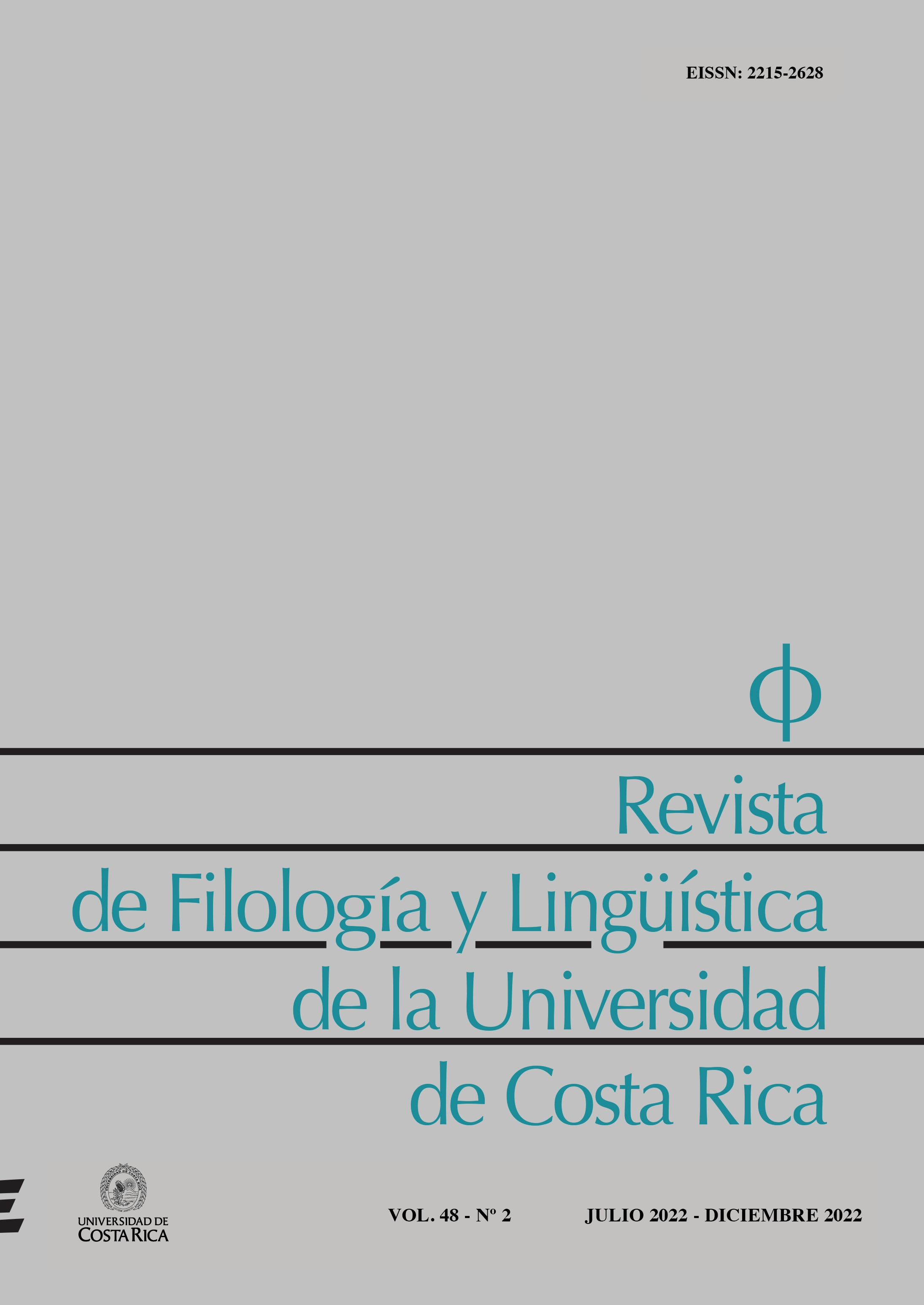Abstract
Postmodernity is characterised by the concepts of plurality, discontinuity, antagonism, deconstruction and other features such as hybrid construction. These predominant features of the present time are due to a plurality and multiplicity of procedures practised in literary works in an interferential way, which gives rise to a sense of insecurity. Postmodern narrative texts have proved to be a demanding challenge for today's readers and require their necessary reading collaboration, precisely because of the openness of the works and the implicit function of the reader, which requires him or her to recognise and know how to deal with the constant play with truth and fiction, in order to competently face the new demands. We would therefore like to analyse the following aspects, among others: How does one read a postmodern novel and what skills must a postmodern reader master? For this purpose, we examine the novel Das Russenhaus (The Russian House) by Ota Filip, making visible the main narrative techniques in this fictional biography, which lead to the conclusion that the author renounces objective truths, thus showing that historical accounts are a construction of their narrators.
References
Acosta Gómez, L. A. (1989). El lector y la obra. Madrid: Gredos.
Barthes, R. (1987). El susurro del lenguaje. Barcelona: Paidós.
Filip, O. (2005). Das Russenhaus. München: LangenMüller.
Jauß, H. R. (1977). Ästhetische Erfahrung und literarische Hermeneutik. München: Wilhelm Fink.
Leibrandt, I. (2018). Postmodern Literacy: Multimodal, Hypertextual, Intertextual Reading. En E. Dominguez Romero, J. Bobkina y S. Stefanova (Eds.), Teaching Literature and Language Through Multimodal Texts (pp. 258-276). USA: IGI Global.
Leibrandt, I. (2019). La lectura multimodal; nuevos retos para el lector posmoderno. En J. M. de Amo Sánchez-Fortún y P. Núñez Delgado (Eds.), Lectura y educación literaria, nuevos modos de leer en la era digital (pp. 257-269). Barcelona: Octaedero.
Mecke, J. (2014). Ästhetik des Skandals – Skandal der Literatur: Struktur, Typologie, Entwicklung. Poetik und Ästhetik des Skandals. En A. Gelz, D. Hüser y S. Russ-Sattar (Eds.), Skandale zwischen Moderne und Postmoderne (pp. 307-330). Berlin: Walter de Gruyter.
Nadolny, S. (2012). Die Entdeckung der Langsamkeit. En E. Schilling (Ed.), Der historische Roman seit der Postmoderne (pp. 125-132). Heidelberg: Universitätsverlag Winter.
Navajas, G. (2002). La narrativa española en la era global. Barcelona: EUB.
Ortheil, H. J. (1994). Was ist postmoderne Literatur? En U. Wittstock (Ed.), Roman oder Leben. Postmoderne in der deutschen Literatur (pp. 104-126). Leipzig: Reclam.
Ricoeur, P. (1992). Oneself as another. Chicago: University of Chicago Press.
Schilling, E. (2012). Der historische Roman seit der Postmoderne. Heidelberg: Universitätsverlag Winter.
Welsch, W. (1988). Postmoderne - Pluralität als ethischer und politischer Wert. Köln: Bachem.
Wermke, J. (2001). Biographie zwischen Lebenslauf und Biofiktion. En C. Köppert & K. Metzger (Eds.), Entfaltung innerer Kräfte. Blickpunkte der Deutschdidaktik (pp. 110-121). Recuperado de https://fd.phwa.ch/wordpress/wp-content/uploads/2014/10/Frederking-2001-Identita%CC%88tsorientiert-Ha%CC%88rtling.pdf
Wirth, U. (1994). Zwerge, Leser, Abduktionen. En H. J. Piechotte, R. R. Wuthenow y S. Tothemann (Eds.), Die literarische Moderne in Europa (pp. 338-354). Opladen: Westdeutscher Verlag.


